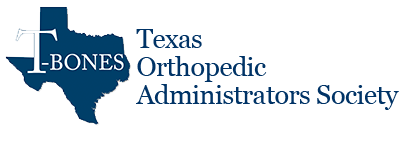Compliance
Emergency Preparedness Plan Requirements for Medicare and Medicaid Participants
Background
On September 8, 2016 CMS announced a final rule:Emergency Preparedness Requirements for Medicare and Medicaid Participating Providers and Suppliers. According to the announcement, the new Emergency Management regulations are set to go into effect on November 16. 2017.
According to CMS, Providers/Suppliers Facilities Impacted by the Emergency Preparedness Rule includes the following:
- Hospitals
- Religious Nonmedical Healthcare Institutions (RNHCIs)
- Ambulatory Surgical Centers (ASCs)
- Hospices
- Psychiatric Residential Treatment Facilities (PRTFs)
- All-Inclusive Care for the Elderly (PACE)
- Transplant Centers
- Long-Term Care (LTC) Facilities
- Intermediate Care Facilities for Inpiduals with Intellectual Disabilities (ICF/IID)
- Home Health Agencies (HHAs)
- Comprehensive Outpatient Rehabilitation Facilities (CORFs)
- Critical Access Hospitals (CAHs)
- Clinics, Rehabilitation Agencies, and Public Health Agencies as Providers of Outpatient Physical Therapy and Speech-Language Pathology Services
- Community Mental Health Centers (CMHCs)
- Organ Procurement Organizations (OPOs)
- Rural Health Clinics (RHCs) and Federally Qualified Health Centers (FQHCs)
- End-Stage Renal Disease (ESRD) Facilities
Further, according to Nicole Lurie, M.D., M.S.P.H., Assistant Secretary for Preparedness and Response, U.S. Department of Health and Human Services:
CMS issued this new rule to create a consistent foundation of emergency preparedness across the health care system, ensuring that providers across the spectrum are better positioned to respond to disasters and to ensure continuity of care for some of our most at-risk populations.
These providers include home health services, dialysis centers, long-term care facilities, community mental health centers, rural health clinics, intermediate care facilities for people with intellectual disabilities, critical-access hospitals, and others which together care for many millions of people across our nation.
Finally, the CMS Final Rule will require impacted providers and suppliers to meet four common standards: Emergency Plan; Policies and Procedures; Communication Plan; Training and testing plan.
HCP Response
CMS published requirements for certain Providers/Suppliers Facilities Impacted by the Emergency Preparedness Rule – such as ASCs. Where we are hearing a lot of confusion among provider is if they are included under “Clinics, Rehabilitation Agencies, and Public Health Agencies as Providers of Outpatient Physical Therapy and Speech-Language Pathology Services.” However, this is a not the same as outpatient medical providers and does not apply to most of our clients.
Healthcare Compliance Pros has developed an Emergency Preparedness module (it’s currently being reviewed and will be published very soon) for our clients who need to comply with the CMS Emergency Preparedness Rule, and for clients who want to err on the side of caution and have a plan in place. Additionally, we have a Disaster Recovery Plan module that can accompany the CMS Emergency Preparedness Rule requirement, and ensure practices have a plan in place in the event of a disaster – natural or otherwise.
Disclaimer:
Information was provided by Healthcare Compliance Pros support. This is by no means legal advice. There may be additional liabilities that you may need to seek legal advice for.





